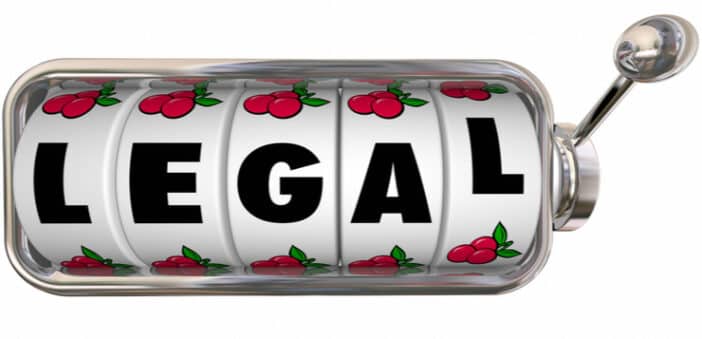The presence of illegal gambling machines at common storefront and bar locations has been a plague in Michigan as elsewhere, but the state’s top regulator believes it has confronted it more effectively than most.
Rick Kalm, the soon-to-depart executive director of the Michigan Gaming Control Board, said Thursday a collaborative, concentrated effort among government agencies and law enforcement has given second thought to establishments that would house the machines and those who would supply them.
More than 1,000 illegal machines have been seized since 2012 as part of an ongoing Michigan effort that involves the gaming board, attorney general, local police departments, liquor and lottery agents, and others, Kalm told an online audience viewing a Global Gaming Expo webcast titled “Combating Unregulated Gaming Machines.”
The American Gaming Association, which sponsored the presentation, has made a point of focusing attention on the threat posed to the nation’s legal casino industry by devices that can mimic slot machines while showing up unregulated and untaxed in convenience stores, gas stations, clubs, taverns, restaurants, and elsewhere.
“We don’t think we’re ever going to wipe it out … but we do believe if we keep the heat on, we’ll make it much more difficult for them to operate,” Kalm said.
Casino industry publishes white paper on topic
The AGA explained its concerns this week in a new white paper, Skilled at Deception: How Unregulated Machines Endanger Consumers and Dilute Investments in Local Economies.
Among issues it raised were the chance for criminal activity connected to the machines, lack of consumer protections surrounding them, potential use by minors, and the absence of any warnings or information pertaining to compulsive gambling.
For the gaming industry, there is of course the concern about competition from machines that can be operated at lesser cost due to absence of regulation and taxation. And for government regulators like the state gaming board, there’s the issue of how potential government tax money relied upon from machines within casinos can be siphoned off due to play of the illegal devices.
Kalm said authorities in Michigan have had to make clear to establishments — despite insistence to the contrary sometimes by game suppliers — that state law forbids the use of any of the various types of gambling machines outside casinos. Authorities will typically first issue a cease-and-desist order if they’re aware of the machines, and then follow up with seizures and potential penalties if problems persist, Kalm said.
He said a team of seven staff members is assigned a focus on weeding out illegal machines, which is essential because local law enforcement entities often lack sufficient time or knowledge to prioritize it. And the gaming board realized it was essential to have help from agents of the Liquor Control Commission and state lottery, as they’re the ones commonly in the establishments. A tip line is also used, for the public to report machines they’ve seen.
“A lot of them are legitimate businesses or fraternal halls that want to have their liquor licenses or sell the lotto,” Kalm said of those housing the machines. “We work with liquor control and the lottery to say, ‘You’ve got to make a choice. If you want to sell liquor, you’ve got to get rid of those machines … lottery too.’”
There’s a gray area but shouldn’t be
Kalm was joined on the panel by moderator Jess Feil, the AGA’s vice president of government relations; Ed Davis, former Boston police commissioner who now heads a security consulting firm; and Kevin Mullally, general counsel for Gaming Laboratories International, which is in the field of testing and certifying legal machines.
The group discussed the challenge of how the widespread presence of the machines — which can be known as “skill games” or presented in other forms resembling legal slots — is often viewed as a victimless crime.
That perception, they said, ignores the need to protect consumers either from their own addictions or from being taken advantage of by machine operators, who are under none of the minimum payout requirements that apply to regulated casinos.
A point emphasized was the need to educate lawmakers around the country on the issue. Many states have laws that are either outdated or murky surrounding the machines, as modern versions of them with increased sophistication weren’t contemplated in the past. Game manufacturers or distributors often maintain they aren’t explicitly illegal.
“There shouldn’t be an exception for gray gaming,” Mullally said, noting when he did his own study of the illegal games he found they were far more ubiquitous nationally than he had assumed. “There is no gray gaming — it’s either legal or illegal.”





